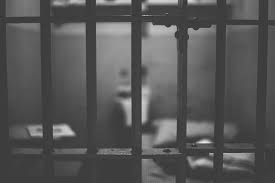WESTERN CAPE: The life sentence of a convicted rapist who brutally raped a lesbian woman, while still on a suspended sentence for sexually assaulting a minor, has been confirmed in the Western Cape High Court.
Albro McLean, 45, who is also a known Tik addict had earlier applied to the Western Cape High Court to appeal the life sentence that was handed down to him in the Wynberg Regional Court. He was convicted of “corrective rape” a crime described in court as a hate crime that was far worse than other forms of rape.
McLean pleaded not guilty to charges of rape and assault with aggravating circumstances in the Wynberg Regional Court on 15 March 2019. He had raped the complainant on 28 August 2017.
The rapist filed a guilty plea despite the fact that his DNA profile was found on a sample collected from his victim’s cervix. During the trial, he alleged that the complainant was a Tik addict who had had consensual sexual intercourse with him on previous occasions and falsely implicated him when she realised that he would not leave his girlfriend for her.
McLean changed his plea after the complainant’s emotional testimony in the Wynberg Regional Court. He apologised to her for having to testify and expressed his regret for the incident. Hearing this change of heart, the state then started leading evidence on the charge of assault with aggravating circumstances. McLean changed his admissions during his testimony denying all the charges against him.
The court heard that the victim and rapist had been long-standing neighbours.
It was known in the community and McLean knew that the complainant was a lesbian. On the day of the rape, his victim had received a call asking her whether she had seen Mclean’s sister, Malenesha. After responding to the query, she went for a walk. She saw Malenesha sitting on the stoep of her home. She went to her to tell her that someone was looking for her. While speaking to Malenesha, McLean appeared. He invited the victim into the yard. She came in and smoked a cigarette while sitting on the stoep. Malenesha invited her inside the house.
While sitting on the couch, Malenesha disappeared. The complainant asked McLean where she was and he told her that she left to visit a friend. As the complainant was preparing to leave, Mclean became aggressive and pushed her in order to prevent her from leaving. He threw her on the bed and told her that he would make her a woman. He started hitting her with his fists and smothered her with a pillow on her face. She became dizzy and he raped her. She cried and told McLean that she was a lesbian but he continued to rape her.
After her ordeal, the complainant went home and started crying. Her mother asked her what happened and she relayed what had happened; she then called the police and McLean was arrested.
The ordeal had so much impact on her, she attempted suicide. She also started harming herself. Some members of her community became aware of the rape and started passing snide remarks, while others threatened and pressurised her to withdraw the case.
“His previous convictions which ran between 1992 and 2012 included cases of theft, drug related offences, housebreakings with intent to steal and robbery. In 2015 he was sentenced to five years imprisonment wholly suspended for five years with conditions for sexual penetration of a minor,” he said.
McLean was still under a suspended sentence when he raped his latest victim.
During his appeal his lawyer argued that the sentence was disproportionate to the offence and that the court had overemphasised the seriousness of the offence at the expense of his personal circumstances.
However, state advocate, Liezel Scholzel dismissed the convicted rapist’s argument. “Rape is a very serious offence constituting, as it does, a humiliating, degrading and brutal invasion of privacy, dignity and the person of the victim. It is regarded as a cancer within the society,” she said.
She said McClean had not only raped his victims but had done so “with a further motive and out of prejudice that he had against her sexual orientation, causing further serious emotional trauma”.
“This type of rape has been informally termed as ‘corrective’ rape. Corrective rape is not the same as ‘mere’ rape in that it is committed based on prejudice and intolerance. Hate crimes by nature cause greater harm than ordinary crimes because they increase the vulnerability of the victims as they are unable to change the characteristic which made them a target,” she argued.
Deputy Judge President, Judge Patricia Goliath and Pangarker AJ heeded the call to address the controversial issue of ‘corrective rape’ as a hate crime and serious form of gender-based violence by dismissing the rapist’s appeal.
